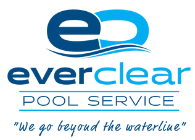
When it comes to disinfection, chlorine is the most used chemical. The pool industry is experiencing a chlorine scarcity, therefore owners must look for alternatives. Trichlor, in particular, has been severely depleted in recently. As a result, experts in the pool industry are pushing pool owners to move from liquid chlorine to alternate sanitation methods. However, changing your pool’s disinfection chemical is not a walk in the park.
The safety of your pool’s water depends on maintaining a healthy chemical balance. Sanitizers are the most powerful in killing bacteria, viruses, algae, and other impurities, but numerous chemicals must work together to keep a healthy pool.
When chlorine is added to water, it acts as a disinfectant, killing bacteria and other pathogens. Tablets, granules, and liquid forms are all available. Stabilized chlorine, referred to as trichlor (trichloroisocyanuric acid), is used in swimming pools to keep them clean. These tablets or sticks can be used in a floater dispenser, skimmer basket, or an automatic chlorinator.
In spite of trichlor’s increased cost, it is not solely about price; other factors must be considered. A lack of trichlor chlorine means that there is not enough for everyone. It’s a win-win situation for your clients and your economic line if you switch to other methods of maintaining your customers’ swimming pools while you wait for the shortage of chlorinated trichlor to subside.
Liquid Chlorine
Some people may not enjoy the trouble of more frequent water testing to ensure that chemical levels are balanced and safe for usage, but the obvious alternative is pool care liquid chlorine. An algaecide that prevents growth and an enzyme addition which removes other impurities are two examples of performance-enhancing compounds that can be used in swimming pools.
Salt Water System
Converting your pool to a salt water system is a cost-effective and long-term answer to the present trichlor shortage. Using a salt chlorinator, chlorine levels can be monitored and automatically converted into a supply of chlorine. It’s better for the environment and your health than typical chlorine sanitization methods.
AOP based on Hydroxyl
Hydrogen radical molecules produced by AOP devices oxidize and destroy undesirable pollutants, including chlorine-resistant cryptosporidium. They are the most powerful oxidative chemicals available for recreational water treatment because they are highly reactive and short-lived.
Non-Chlorine Sanitizers
There are a variety of alternatives to chlorine that can be considered for the sanitation of swimming pools, despite the fact that the vast majority of people immediately think of chlorine. Baquacil is a well-known alternative to chlorine that is used to clean swimming pools. Indoor pools and spas may benefit from the use of bromine instead of chlorine.
Mechanical Systems
Chemical-free options exist, including UV, AOP, salt chlorine generators, and Ozone systems, which can be installed permanently. In the long run, some people may find these more practical and even more cost-effective than other options.
Conclusion
Ultimately, each pool chemical is unique and has its own set of safety issues. Owners of swimming pools should be aware of these safety considerations before using any chemicals. Maintaining their houses and swimming pools in this manner is essential for their security.
For more information on maintenance help for pools please contact us anytime.
More Information on Pool Maintenance:
How to clean poop out of the pool
Uncharted waters – new pool owner responsibilities
Pool Service and cleaning for Lake Havasu City
Black Algae and Your Lake Havasu Pool
Does Chlorine make your eyes sting?
